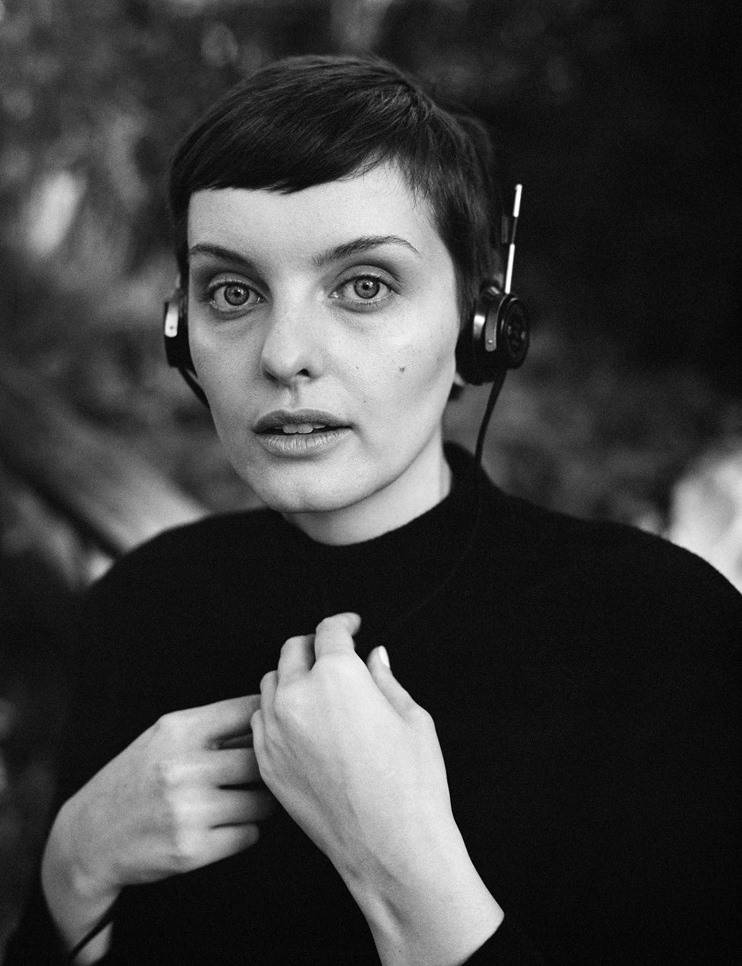
For her third album as MECHA MAIKO, Toronto-based Hayley Stewart has a impassioned message that things are ‘NOT OK’.
Triggered by the various social-political flashpoints that emerged during the worldwide pandemic, a lyrical maturity has emerged compared with the charming naivety of her debut MECHA MAIKO long player ‘Mad But Soft’. But while there is now more serious intent, the sense of fun in the instrumentation continues to ensure that the message can get through and be appreciated on a number of levels. Displaying the care-free sonic idealism that was showcased on the interim ‘Okiya’ EP and her second album ‘Let’s!’, MECHA MAIKO continues her fascination with Far East while adding techno rhythms into the mix.
Hayley Stewart spoke to ELECTRICITYCLUB.CO.UK about the making of her latest MECHA MAIKO opus and why it’s still NOT OK…
Looking back now on your first two albums ‘Mad But Soft’ and ‘Let’s!’, there was a major leap in your approach to your music from the more dreamier sound of your debut to the musical Bento box of your second, how do you see your own creative transition to where you are now?
A handful of the songs from ‘NOT OK’ were started while I was attending ORO listening parties, where a group of local artists got together and shared their demos and recently completed tracks. BULKHEAD had brought me into the fold and had shared a lot of their musical influences with me – for example, turning me onto LIES records – which ended up being a huge well of inspiration. I also found inspiration by the unflinching, gritty sonics in tracks from the likes of Nailbiter, Josh Tan, and so many others.
This chapter really opened the door for me to fall in love with techno again, this time in a darker shade compared to the poppy, uplifting dance numbers I had grown up with in the late 90s. MSTRKRFT had shared a recording of one of their improvised hardware sets from years ago and I felt, hell yeah, why not play around a little more instead of focusing on a smooth and perfect performance? I would go home and make pop music still, of course, but I felt compelled to leave harsh edges around everything I did. There’s a certain empowering feeling when you let things hit a little harder; as well as when you have the space to leave some imperfections and improvisations – things that feel human.

‘Apathy’ from ‘Let’s!’ was an example of Bento box thinking, with swing, techno and traditional music from South East Asia thrown into the mix, what was going through your mind when you were piecing it together.
I still had a couple vintage recordings that I wanted to rework into new tracks from when I was working on ‘Okiya’ that didn’t fit the bill. To be frank, I just threw all expectations out the window to see what naturally occurred. ’Apathy’ was basically just a creative challenge to see how I could create a dance track using some of my favourite 80s / 90s sounds using a 1947 recording as its basis (here’s the track for anyone curious). It’s also probably the most fun I’ve had with writing and performing vocals since I hadn’t attempted anything jazzy before.
‘NOT OK’ has an important message, was there any particular moment in what was going on in the world that it went from just a mighty song to an idea for an album concept?
I have always tried to incorporate subversive, relatable messages in my music but this time, I felt like I had to be more explicit since I was just so, so angry. The concept for the album was more of a product of living through multiple crises over the last near-decade and there being an utter failure by our institutions to act accordingly, let alone acknowledge wrongdoing. I’m not a cynical person, so living can be hard when you know that things should and can change for the better. Honestly, the most grounding thing to happen in the last little while has been watching Trump actually be prosecuted for some of his absurd (and this is too light a word) bullsh*t. It makes me feel less doomed.
Is this why ‘Just Some Guy’ ended up as a bonus track as it didn’t sit with the theme of ‘NOT OK’?
Precisely – it came into being at the very end of the album-making stage. It was a simple reminder to not get my head stuck up my own ass. As tech companies have taught us to measure success by using metrics of popularity and so-called ‘engagement’, we often think that having a platform and a base of supporters somehow means we’re infallible. I’m not the most popular artist out there, to be sure, but I’ve watched others develop a bit of a complex because they’ve experienced success. Thankfully, I’ve also met amazing people who have held onto their humility throughout their careers, which to me, is truly aspirational.
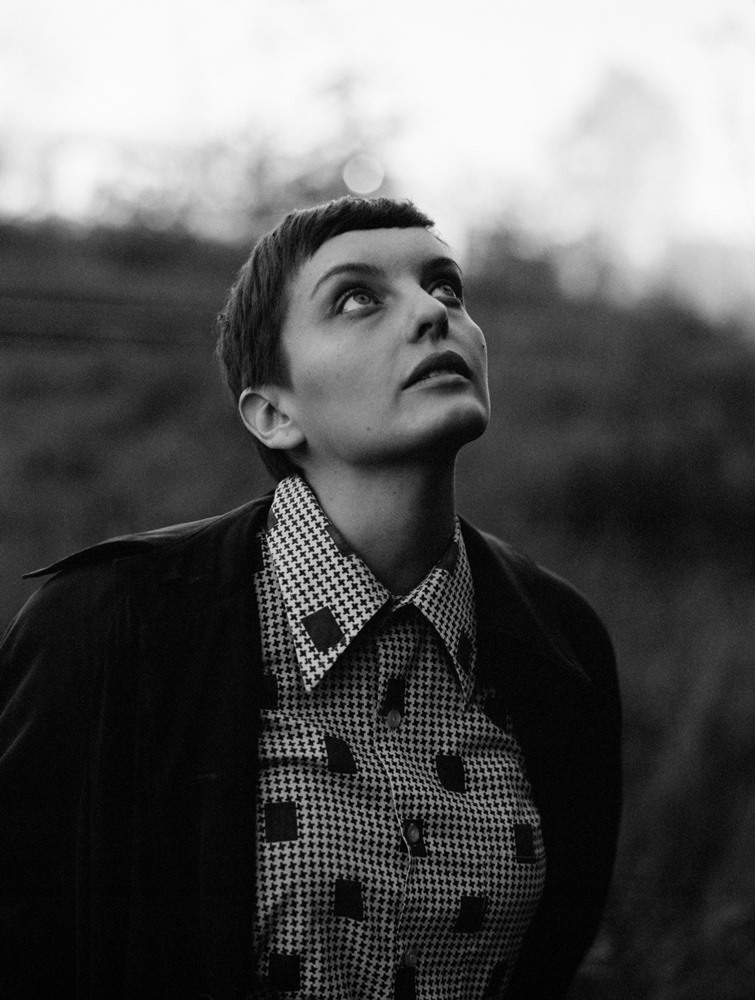
With the serious message of the ‘NOT OK’ album, how did you come to the idea that dance rhythms would be the best accompaniment, had the ‘Let’s!’ track ‘Phones’ been a seed to all that?
Dance rhythms are so much fun to make, so it felt natural! A good beat connects with some part of the lizard brain within us; on a subconscious, ancient level. A good dance track is one that you feel with your whole body, and I think that physical connection is important to feel when we’re talking about shaking off feelings of impotent rage and building a better world instead. Lyrics often feel like an afterthought in so much pop / dance music, and I didn’t want to throw away the opportunity to say something that I felt needed saying.
Even if some people listen to the album for the musical content alone, I’m happy – I just needed to get a lot of these thoughts off my chest, and hopefully normalize having more outspoken, left-leaning, heartfelt, lyrics.
It’s interesting how MECHA MAIKO has been considered part of the synthwave movement and ‘Innocent’ from the new album has hints of that, however ELECTRICITYCLUB.CO.UK sees you as having more in common with European avant pop traditions, do you have any thoughts?
Well, I consider the affiliation with Avant Pop a major compliment – don’t mind if I agree! It makes sense considering my restlessness when it comes to sticking to a strict “sound”. I think my connection to the synthwave scene is a product of my first real break when I was with DEAD ASTRONAUTS. But even as I broke off and explored new sounds, a great deal of people were willing to join me for the ride, which I’m really grateful for. NewRetroWave has grown a lot as a label and I respect them immensely for supporting me through all my metamorphoses, even though there are definitely still some listeners who get disappointed when something “isn’t 80s enough…” – the 80s had a lot of notable artists who produced amazing experimental pop, so maybe the connection I have with 80s revival music has moved more towards a spiritual level than an aesthetic one.
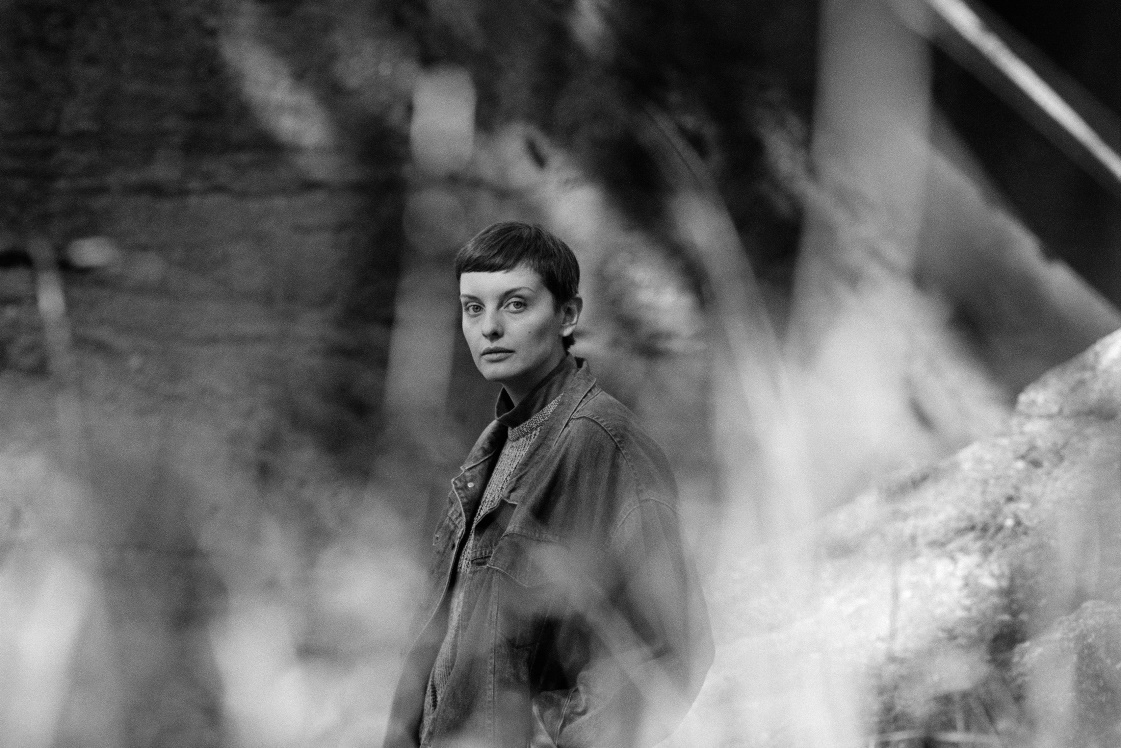
How do you look back on appearing in ‘The Rise Of the Synths’ and how the final documentary came out?
I was still really naïve when this was shot, having only played a couple shows at the time. Being asked to appear in the doc was a lot of things – simultaneously an honour and a mystery as to why I was included and yet others weren’t… but the list of artists who do and do not appear is a can of worms and not my call to make.
Anyways, I feel like there were definitely better moments from the hours of filming that were more worthy of inclusion (probably like many others). To be frank, I’m a little underwhelmed that my appearance in the film seemed to focus only on my responses to questions about what it’s like to be a female producer. I’m still grateful for the experience, but respectfully, I think there were lost opportunities to really engage with the artists rather than having them simply muse upon the concept of synthwave.
‘Sunny, Softly (I Feel Love)’ appears to have been influenced by New York electro, had there been any particular records that shaped that and how did the idea of dropping Donna Summer in come about?
The lyrics “I feel love” felt so simple and perfect to summarize all the warm and beautiful moments I was writing about, which made me think more of a proper nod to the Donna Summer track was in order. There’s a weightlessness to her song that I wanted to have play through the listener’s mind at the same time that they were listening to mine.
‘The Kids’ heads more towards ‘Detroit’ and has political sentiments, what do you say to those who may consider that politics and music should not mix?
I’d say they should look deeper into music history.
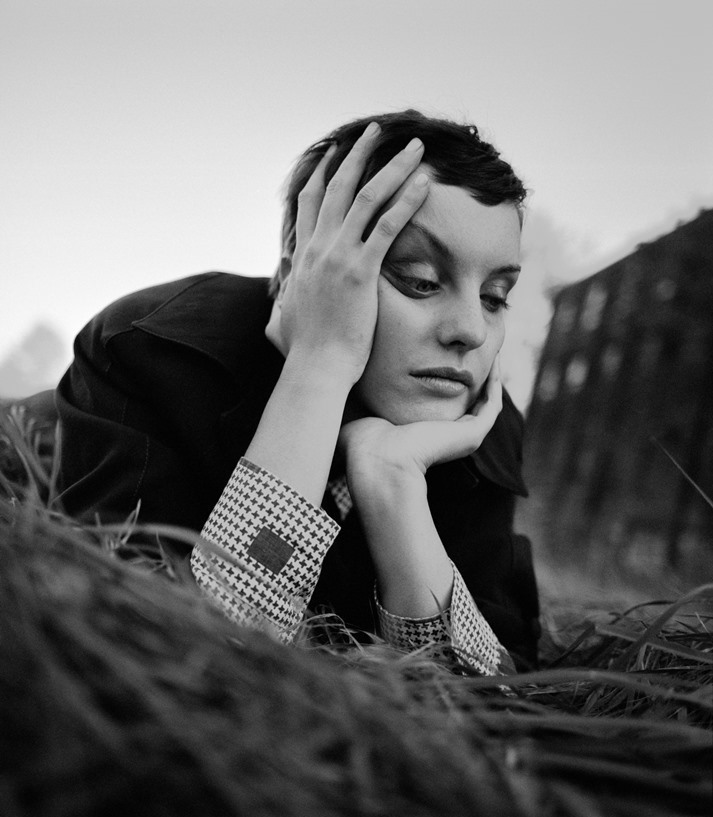
‘400 Humans’ is almost electro body music and it’s quite clever how it threatens to morph into various famous tracks but doesn’t actually do so, like a tease; I can hear ‘Are Friends Electric?’ at the start and ‘Running Up That Hill’ in the middle…
It’s so interesting how you hear those tracks in there! On second listen I can hear the similarities. My musical diet definitely rubs off on what I create, so it’s neat to hear what people pick up on that I might not have noticed or referenced intentionally.
Had you focused on using any particular equipment or software in the production of this album?
The only real thing of note I played around with in the demo stages of the album was a ToneBoosters Trash plugin so I could get used to making things that felt really crunchy and distorted. In the final mixing / mastering stages I took this away and Jack Marko and I worked on getting some of those similar vibes from hardware compressors in the studio, and the result is a little warmer and less jarring than what I had originally worked with. To be honest the album would be a little unlistenable for some folks if I had kept it, ha ha.
In terms of voice effects, how do you keep the balance between natural and processed vibrato? What are your thoughts on how it perhaps has been overused into pop music?
With this album I decided not to do any vocal tuning and not to smooth out the vocals all to hell, haha. Vulnerability was an important element in the album so I wanted to keep things a little raw so that the emotions I felt while singing could translate better.
‘Webs’ uses metallic textures and sounds that echo pioneering UK acts such as HEAVEN 17 and DEPECHE MODE, does the early era of electronic music hold any interest for you either historically or as inspiration?
Oh, absolutely! HEAVEN 17 is actually one of the acts that introduced me to electronic music, up there with NEW ORDER. I was really taken with sounds that didn’t seem like they could really be created with acoustic instruments, partially because of their mechanical quality, or the strange spaces created by artificial reverb. My friend Sferro pointed out that the percussion in ‘Webs’ reminds him of songs created by David Wise, who was a composer for a lot of the soundtracks of SNES games I grew up playing. It blew my mind once he pointed this out since I realized I loved so much of his work – ‘Fear Factory’ from Donkey Kong Country was one of my favourites. Again, often I just feel like a sponge wringing out my influences whether I know it or not.
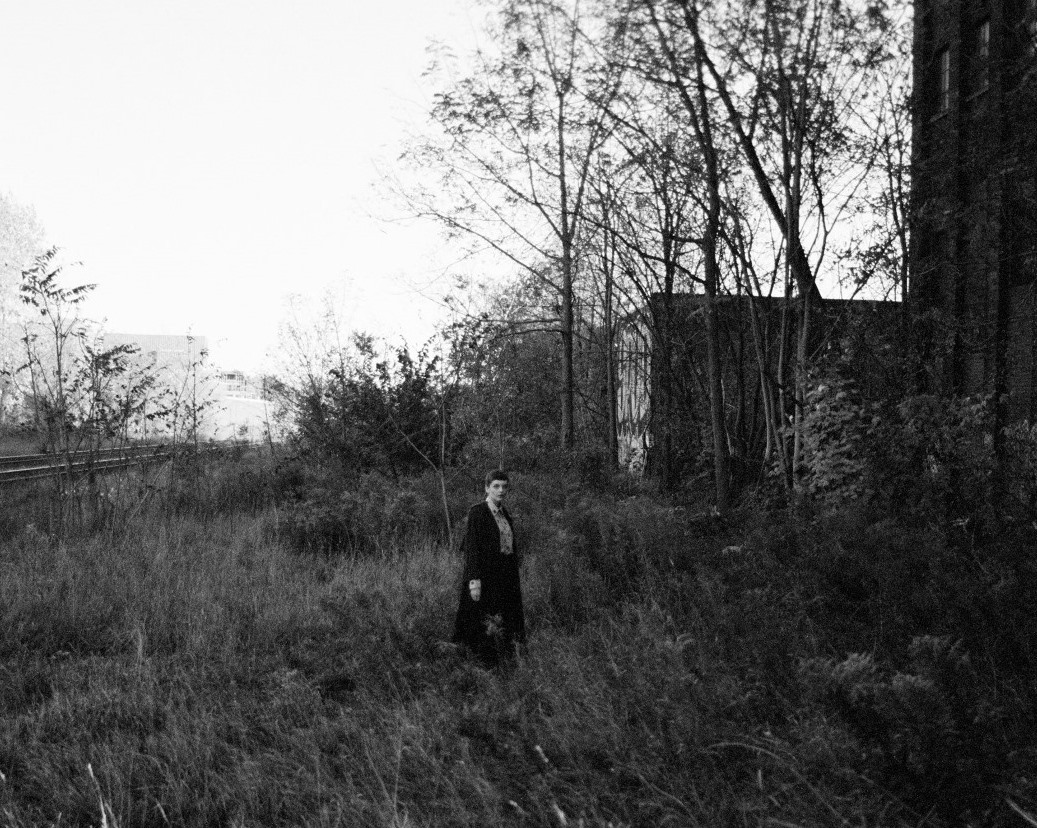
Do you have any particular personal favourite tracks on the album?
If I had to pick a favourite, it would probably be ‘Shut It Down’. I got to dig into production that reminded me a lot of what I listened to as a kid, but had stopped openly enjoying since almost none of my friends growing up were interested in the same sort of music. It felt good to be able to tap into those once-guilty pleasures and unabashedly write in some trance synths and relish the dance vibes, coolness be damned.
What is next for you?
Over the last year or so I’ve been working with some extremely talented producers on a project that I’m very excited about. I haven’t done any long-term collaboration like this in years, probably not since the days of DEAD ASTRONAUTS. I’m so fortunate that this group and I sync so well and I can’t wait to reveal the music we’ve been making.
ELECTRICITYCLUB.CO.UK gives its grateful thanks to Hayley Stewart
Special thanks to Michael Oakley
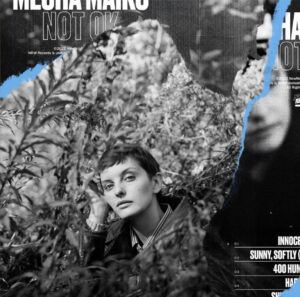 ‘Not OK’ is released by New Retro Wave, available as a white / black coloured vinyl, CD, cassette and download from https://newretrowave.bandcamp.com/album/not-ok
‘Not OK’ is released by New Retro Wave, available as a white / black coloured vinyl, CD, cassette and download from https://newretrowave.bandcamp.com/album/not-ok
https://www.mechamaiko.com/
https://www.facebook.com/mechamaiko/
https://twitter.com/mechamaiko
https://www.instagram.com/mechamaiko/
https://soundcloud.com/mecha-maiko
https://open.spotify.com/artist/53a9zoSEQzvgcmy27AUkMq
Text and Interview by Chi Ming Lai
Photos by Zackery Hobler
24th October 2022

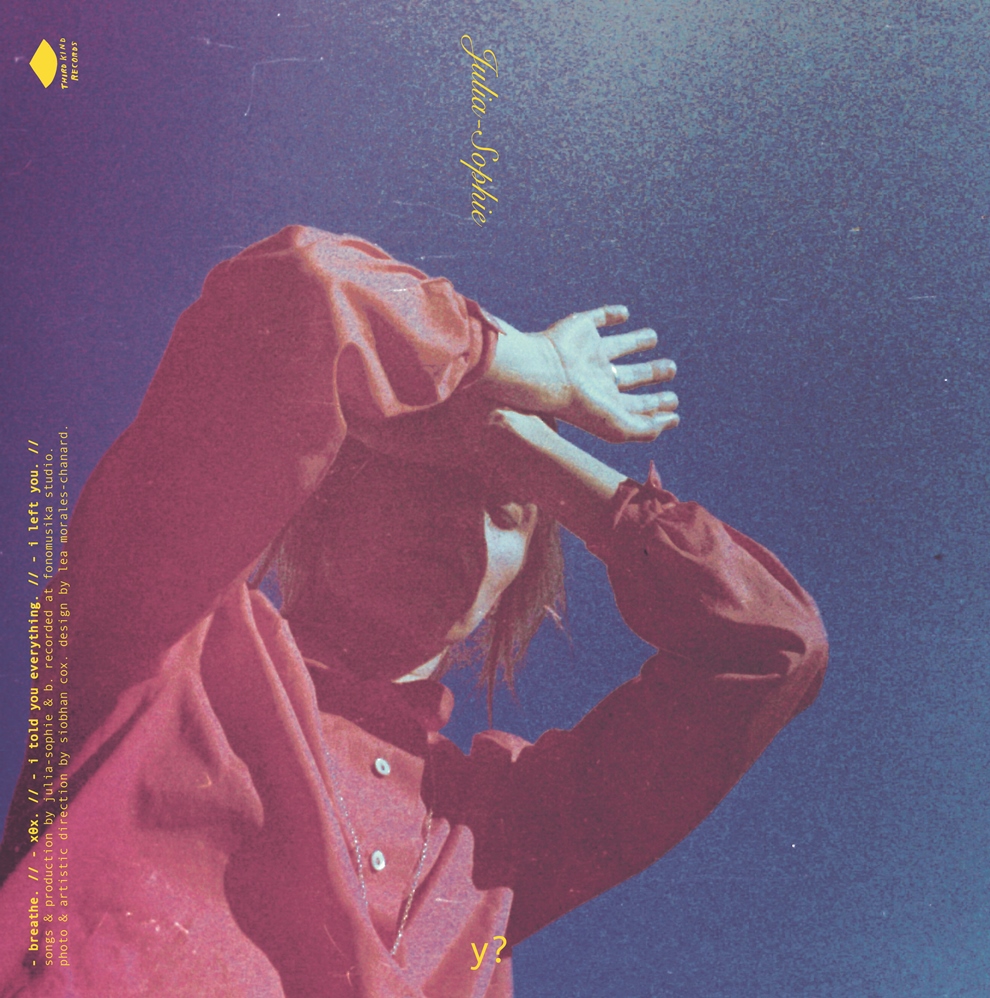
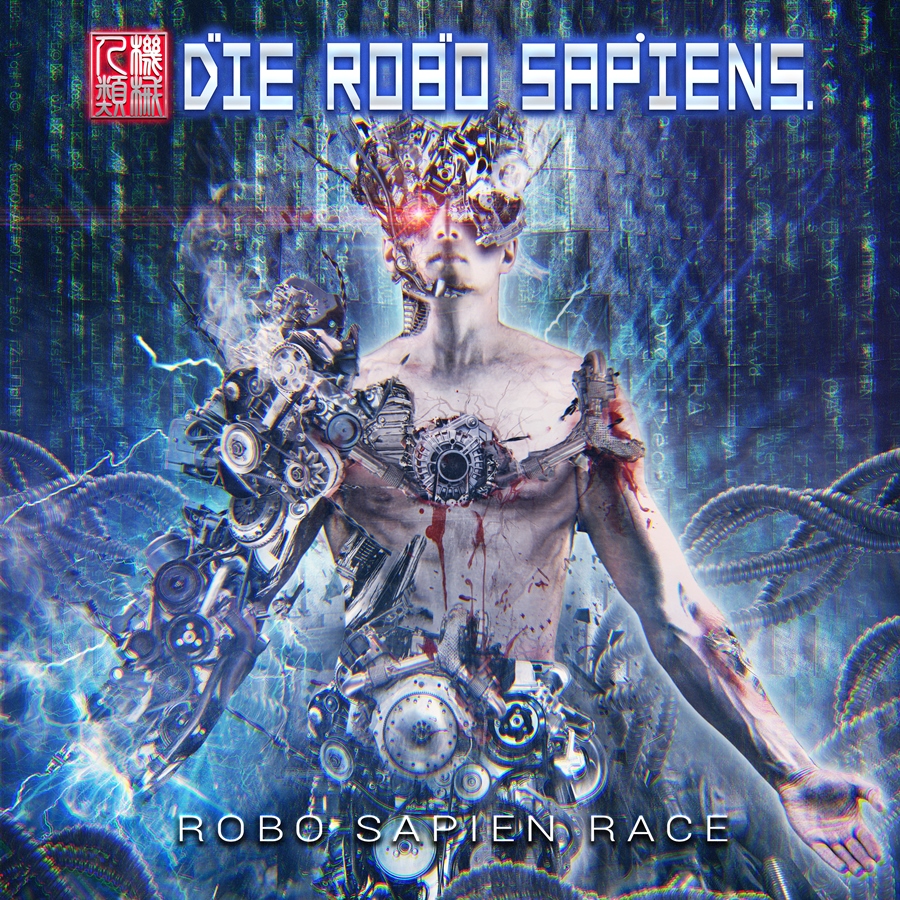
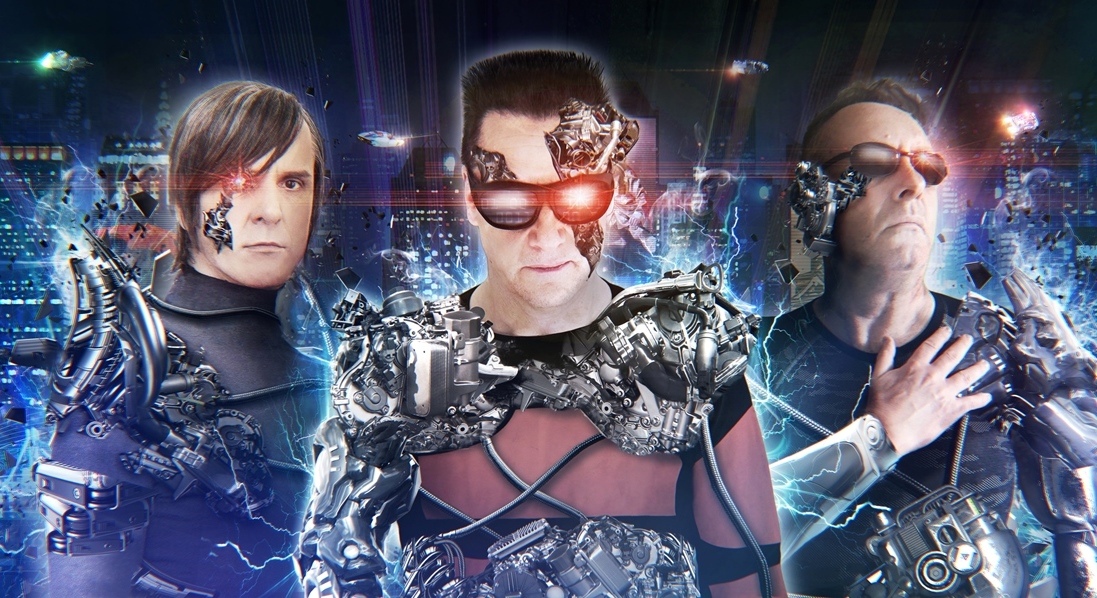







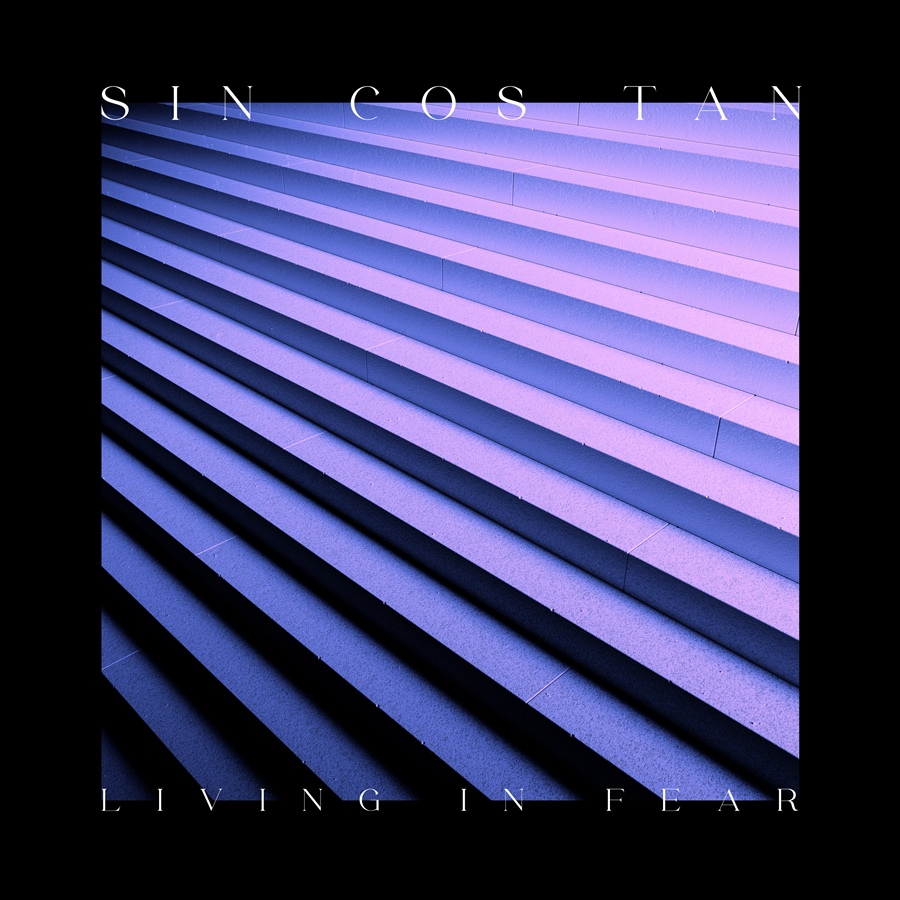
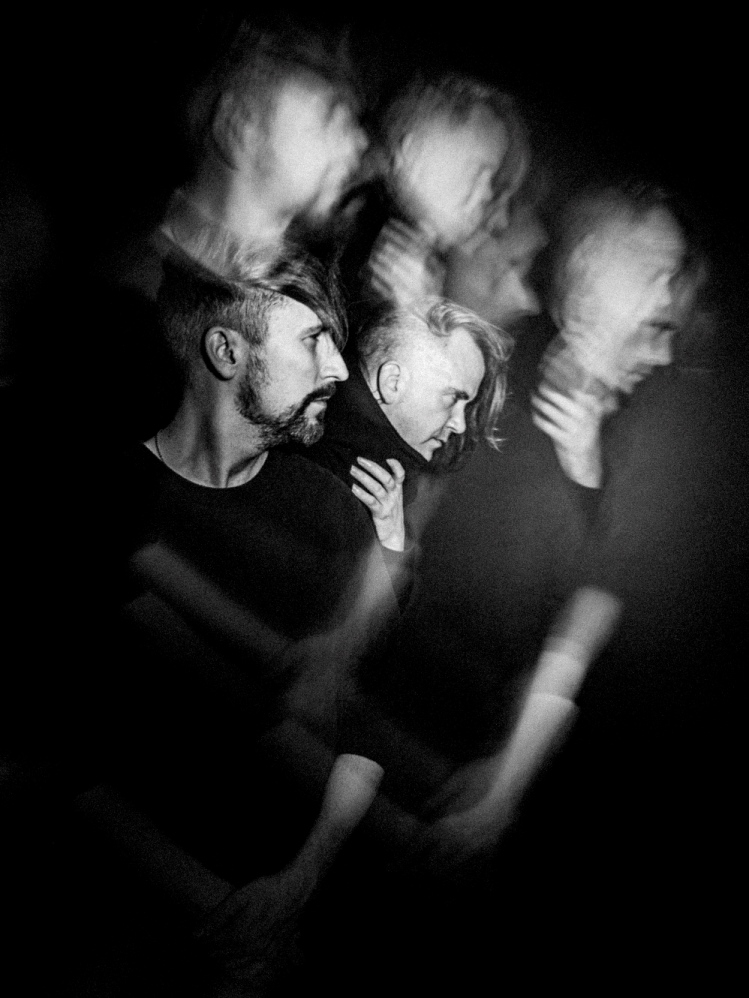
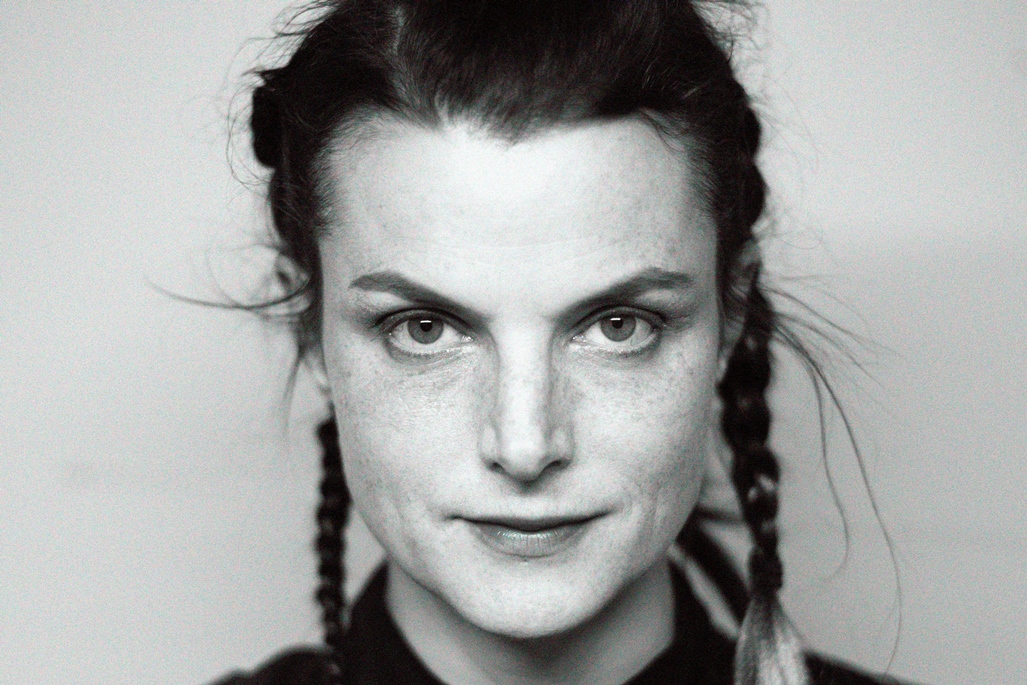
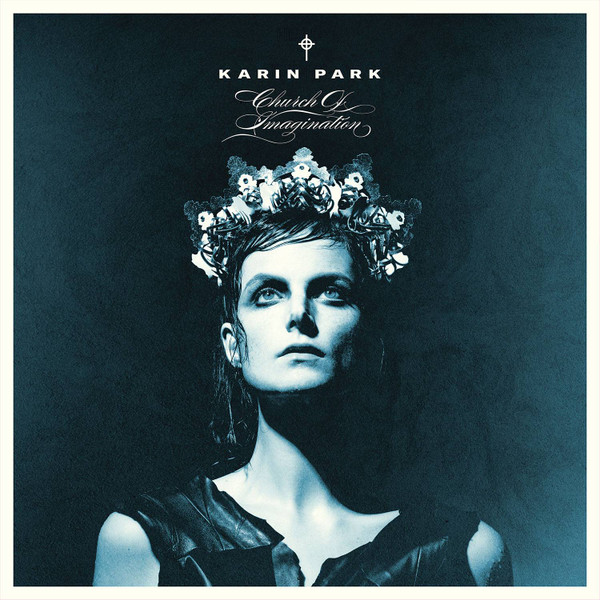
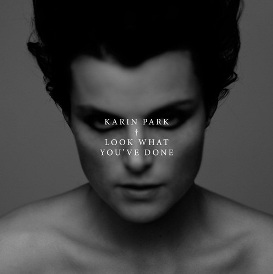
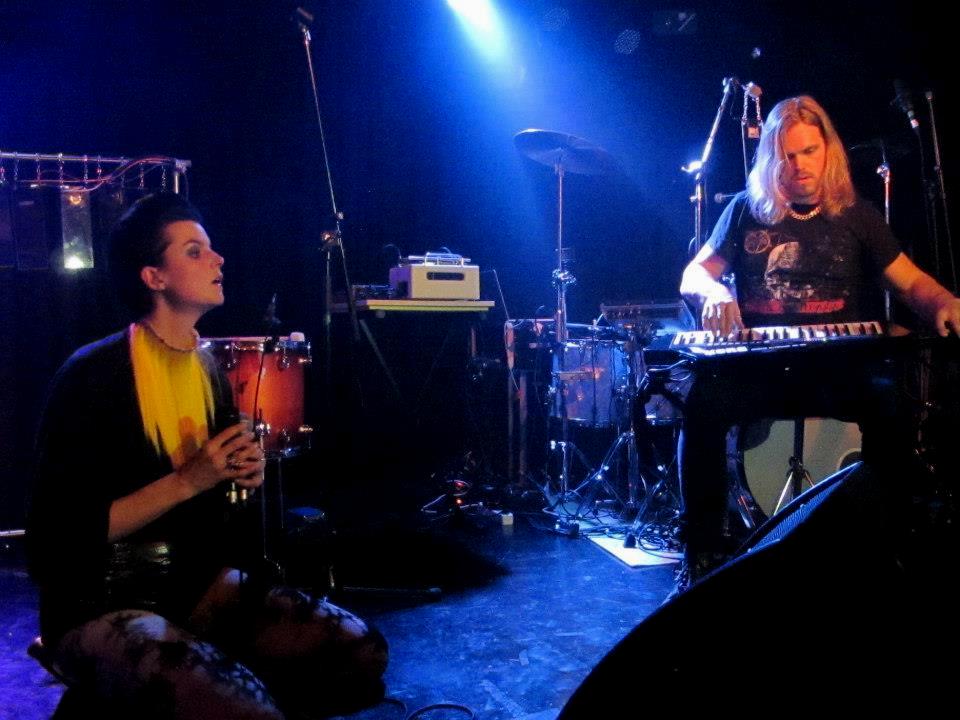
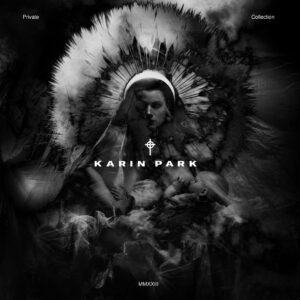
Follow Us!